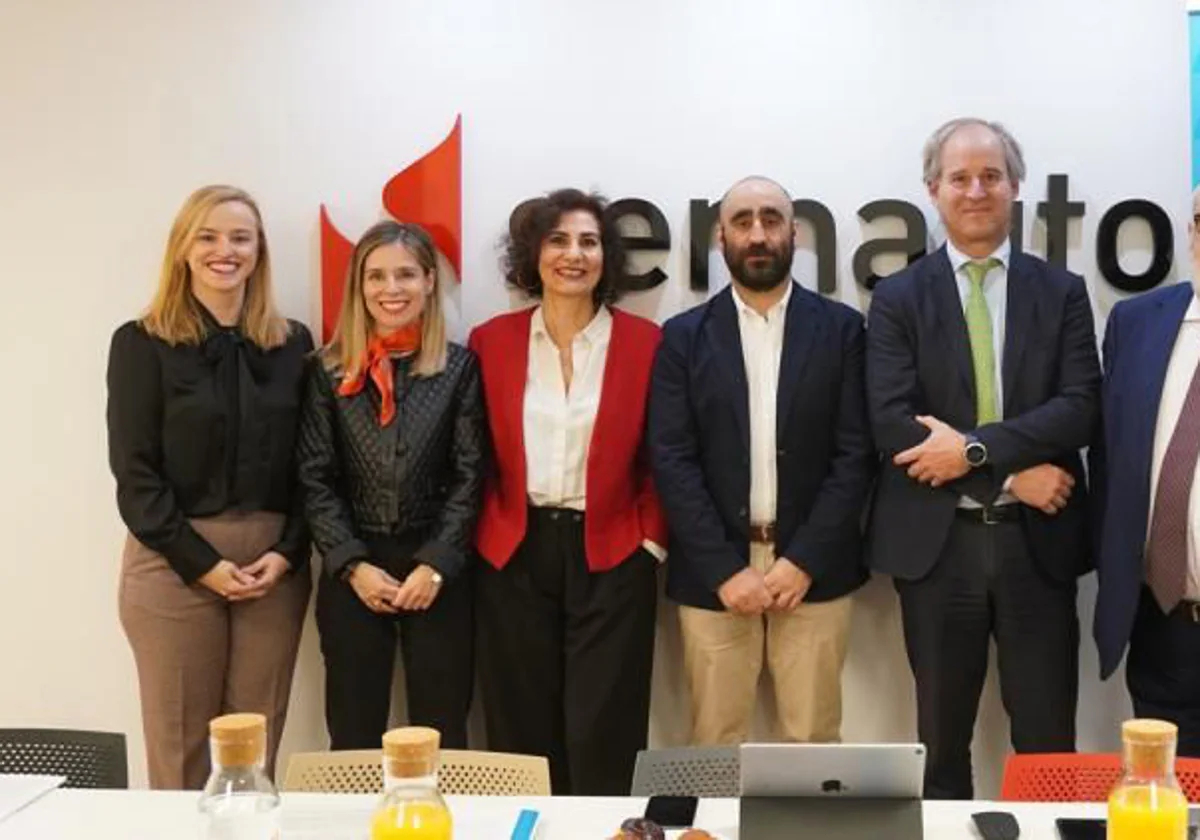
Canal Motor
Miércoles, 6 de noviembre 2024, 07:30
Necesitas ser registrado para acceder a esta funcionalidad.
After a series of meetings where the topics currently being worked on by the automotive ecosystem in our country were discussed in depth, the Automotive and Mobility Technology Platform – Move To Future (M2F), coordinated by SERNAUTO, held a press breakfast titled «Automotive Technologies ‘Made in Spain’. Path to Strategic Autonomy» to address two transversal areas that are also priorities for the sector: talent and sustainability.
During the meeting, a panel of experts debated the lack of talent as one of the factors most impacting the automotive industry in Spain, making it necessary to «make this sector attractive,» as claimed by the Spanish Automotive and Mobility Technology Platform (‘M2F’), which presented this Tuesday’s latest ‘Press Breakfast’ titled ‘Technologies, Sustainability, and Circular Economy’.
«When we talk about talent, we talk about a fundamental factor for companies, which are the people, and therefore, in the face of technological challenges, we need prepared professionals. What is an opportunity to be more competitive is also a challenge because we are experiencing a shortage of skills, an aging workforce, and we must not forget that there is also a lack of attractiveness in the automotive sector due to how we have previously marketed it,» reflected the R&D Director of CIE Automotive, José Esmorís.
The expert explained that the industry is at a moment of technological transition while facing a crisis due to transformation and lack of talent in companies. This is being addressed through national and European projects like the ‘Drives’ initiative.
This project has sought to establish a capacity alliance in the automotive sector through analysis of key trends and available offerings, as well as the definition of roles to be a reference framework and recognition for the EU for the continuous updating and retraining of the automotive sector.
«Through the ‘Dives’ project, each of these professional profiles has been defined or created. For each of them, there is a sheet describing what the job entails, and it also includes the training itinerary with the different modules or levels that people need to be provided with to acquire skills at different levels of specialization,» explained Jon Ezkerra, R&D project coordinator at CIE Automotive.
Like this initiative, the University of Deusto, in collaboration with CIE Automotive, Sernauto, Gestamp, and other entities, has developed the Master’s Degree in Design and Manufacturing.
«How are we able to provide a structural solution? We must be able to generate talent at all levels that the production industry needs, and these levels are today with low birth rates, STEM vocations (science, technology, engineering, and mathematics), female talent (this is a male-dominated career) are situations where we need to improve and progress; and the connection with the future is through research,» replied the Master’s Director, Jon García.
The Importance of Dual Vocational Training
Therefore, experts have emphasized that public-private collaboration is necessary, between educational institutions, public administrations, and sector companies to create an attraction of talent to the sector that can enhance the competitiveness of companies.
In this regard, the proposal they have made includes the promotion of Dual Vocational Training (FP) programs involving working groups integrated by companies and public administrations.
Likewise, as has been done with initiatives in Europe, experts have indicated that it is important to identify new professional profiles that respond to market demand needs.
International Talent
Esmorís also emphasized that working with public administrations to make the sector more attractive to attract and retain talent requires general support for industries and is transversal, meaning it requires improving other areas such as housing or migration.
«We, the companies, can be capable of attracting talent. Environments can attract new companies, but if the housing world doesn’t work or the education world doesn’t work, attracting talent, whether European talent or South American talent, which is one of the environments we believe will need to grow significantly in the coming years, will be difficult. If we cannot offer them housing, if we cannot offer them education for their children, it will be difficult for us, as a country, to attract talent to the clients,» commented the expert.
The expert highlighted that the competition for talent is at the industry level and that collaboration in the sector is important, as the lack of specialized training and talent affects «all worlds.»
